Music Therapy
New Music Therapy Service
We are very pleased to offer a new Music Therapy service which could meet more of the needs in the wider community.
Music Therapy benefits people of all ages and backgrounds. It can provide a greater sense of identity, connection and belonging. It is especially beneficial to those who feel withdrawn or isolated, and support those with communication difficulties. Children and Adults accessing music therapy may feel a greater sense of identity, connection and belonging.
The new 40 minute long individual sessions are led by Anna Ter Harr, a tutor and familiar face at The Conservatoire, who is a qualified music therapist, registered with The Health and Care Professions Council (HCPC).
Music therapists are HCPC registered and trained to work with those whose needs may include:
- Social/Emotional/behavioural problems
- ADHD
- Autism Spectrum Conditions
- Sensory processing disorders
- Developmental delay
- Down’s Syndrome
- Communication disorders
- Learning Disability
- Neurological conditions
- Dementia
- Mental Health issues
- Stress, trauma, bereavement
- Personal growth and self discovery
Blog post from Anna Ter Haar – Music Therapist
Hello! My name is Anna and I’m delighted to be founding the Music Therapy service at Blackheath Conservatoire. Having thoroughly enjoyed my work as a flute and early years tutor here for the past seven years, I feel passionately that using music therapeutically can be hugely transformative and I am very excited to now be offering my service as a music therapist at an arts centre I love being a part of and one that very much feels at the heart of the Blackheath community.
I began playing the flute at the age of 8, after attending a concert and being spell bound by the flautist James Galway. I grew up with music being the central and defining part of my life.
Skipping on a few years I completed a bachelors and master’s degree in flute performance at Trinity College of Music. After graduating from music college, amongst my other freelance work, I began leading interactive performances and workshops in various outreach settings. Sharing music in this way with a diverse range of people who were often very disadvantaged, and discovering the power music had to provide connection and communication was formative in leading me to discover music therapy.
I qualified with distinction as a Music Therapist in 2018, having trained on the masters programme at the University of Roehampton. Through my training and since being qualified, I have experience in working with children and young adults with special educational needs; children with sensory processing disorder and emotional and behavioural difficulties; as well as with adults with severe mental illness.
I believe in the therapeutic and transformative power of music that transcends age, ethnicity and ability which can ‘reach us when often nothing else can’ (Wilson, S., (1991) ‘Music Therapy in Education’ In Journal of British Music therapy 5:2)
What is Music Therapy?
Music Therapy provides an opportunity to express and communicate feelings through an alternative, non-verbal medium. This powerful and emotive medium transcends age, ethnicity and ability and elicits responses in all individuals. Music Therapy allows people to express feelings through music when they are unable or find it difficult (for numerous reasons) to put these feelings into words.
Music plays an important role in our everyday lives. It can be exciting or calming, joyful or poignant, can stir memories and powerfully resonate with our feelings. BAMT 2018
A fundamental feature of Music Therapy is the therapeutic relationship which is established between the therapist and client(s). This relationship is built through shared musical play, enabling the client(s) a unique route to communicating their feelings and experiences, connecting with themselves and those around them, and creating different ways of exploring and understanding who they are and saying 'this is me' through music. Talking psychotherapy is a helpful comparison, in which speaking is the medium; music therapists work from the same psychological principles, but use music as their primary medium.
Music Therapy Sessions
Music Therapy sessions utilise a range of musical genres from free improvisation to more structured song writing, with the therapist always taking their lead from the world of sound each client has a preference or need to explore. The music therapist responds musically and with their clinical judgment to facilitate a musical conversation, encouraging and supporting the expression of the clients’ thoughts and feelings. The musical dialogue is very much shared between client and therapist with both taking an active role in the musical playing, singing and listening. Although clients are offered a range of accessible instruments and/or their voice to play or sing as they would like, there is no requirement to have an existing ability to play instruments or sing in a certain or prescribed way.
-

Resident Accompanist: Micah Rose-Trespeuch
If you are in need of an accompanist, please contact Micah directly at micahmusic13@outlook.com. He will be able to get back to you and help you with your request.
-

North London Music Therapy at the Conservatoire!
We are hosting a new music therapy clinic.
-
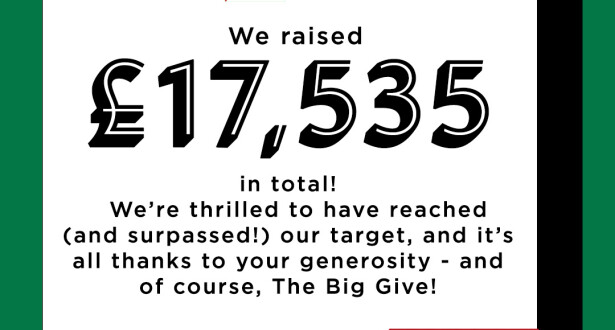
We hit our target!
Thanks to everyone who donated to our Big Give Christmas Challenge campaign!
-
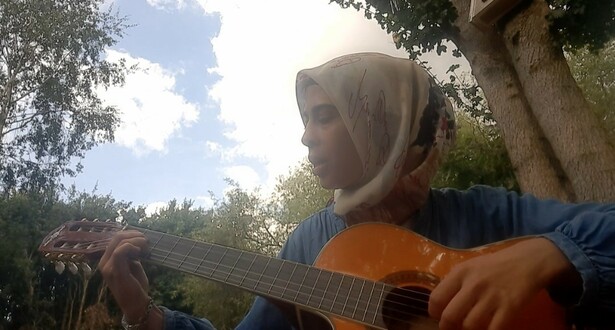
The Big Give Christmas Campaign
We only have one week to double donations to this great cause!
-

Finding Sanctuary through Art, Music and Drama
Refugees and asylum seekers given free places at the Conservatoire
-
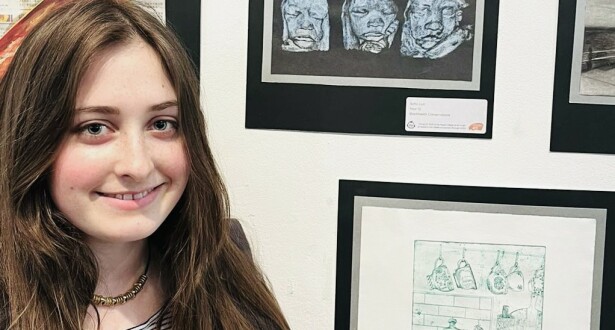
Conservatoire student at the Royal Academy!
One of our students has had her work exhibited at the Royal College of Art!
-
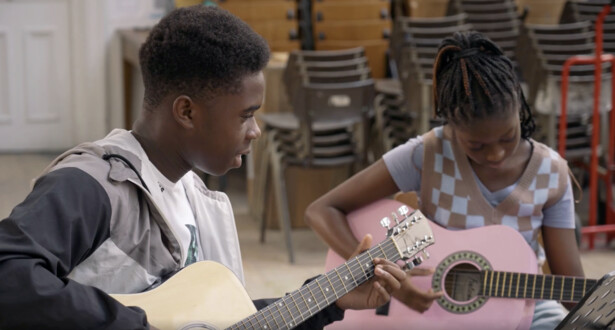
-
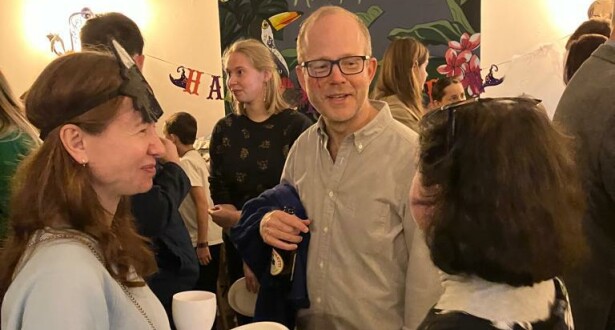
Classes and events for Ukrainian Refugees at the Conservatoire!
Ми вітаємо українських гостей у Блекхіс Консерваторії з новими курсами та подіями, які розпочнуться незабаром.
-
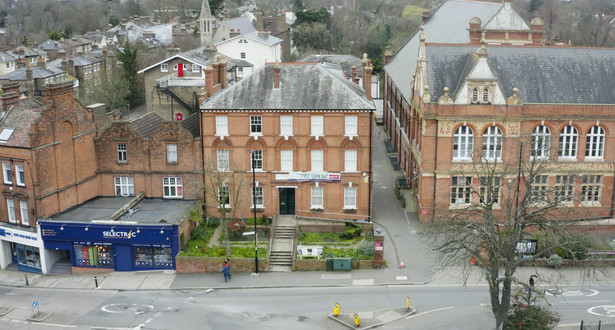
Welcoming our new board members!
The Conservatoire is delighted to welcome five new Board members with a range of very helpful and impressive skills and experience.
-
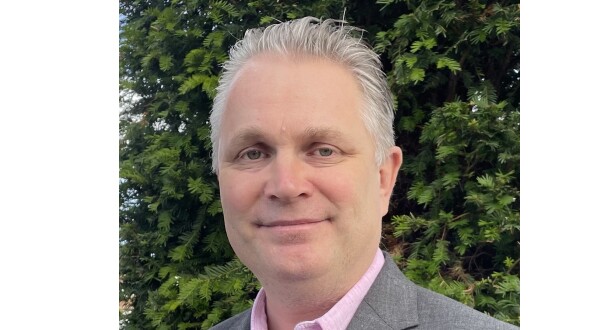
Patrick Holden is our new Executive Director
We are thrilled to welcome Patrick from 1 August. Find out more about him.
-
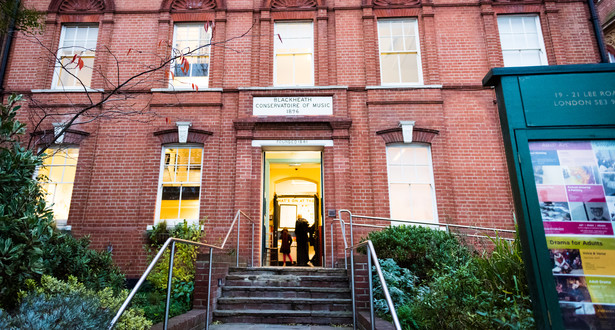
A new café at the Conservatoire!
We are very excited to announce that this Summer a new café will be opening at the Conservatoire. But we need your help...
-

Want to join our Board of Trustees?
We are looking for new members with a range of specialisms